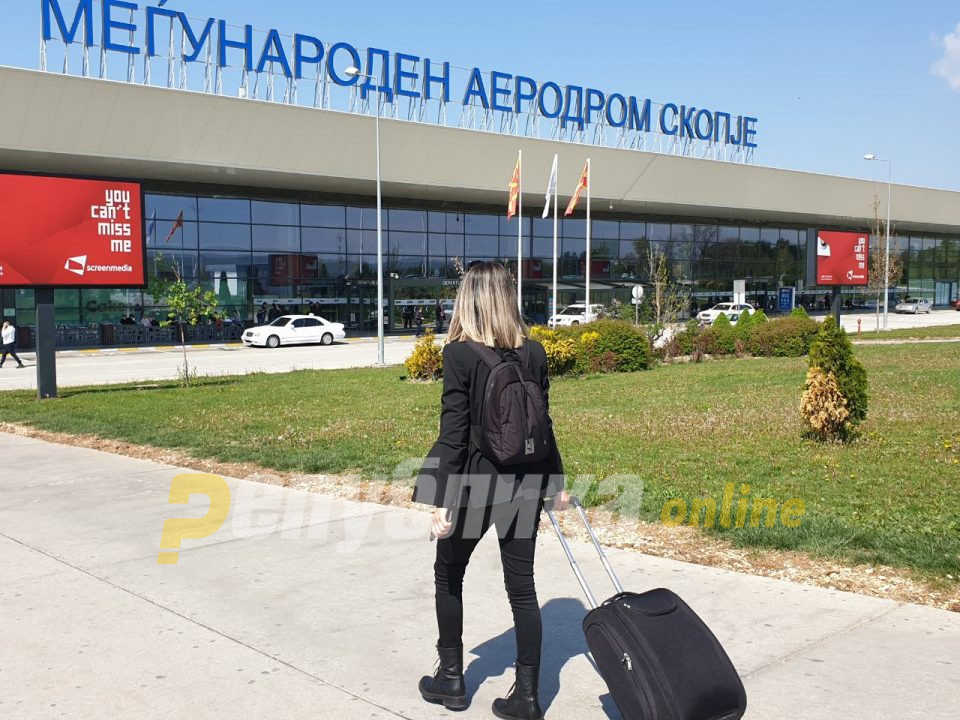Macedonia ranks 5th in Europe for brain drain, the government was incompetent to solve this problem. The State Audit Office (SAO) today published the final audit report from the performance audit “Effectiveness of measures to prevent the drain of higher education and professional staff” “. According to the IOM report for 2020, Macedonia is in the top 20 countries in the world with the largest emigration abroad, while according to World Bank estimates, almost 40 percent of the higher education staff has left the country. According to the Global Economy Brain Drain Index, RSM is in the high fifth place (out of 41 European countries), which clearly shows that the country is facing a major loss of talent.
The purpose of the audit, clarified in the announcement from the SAO, was to answer the question “Has the Government of the Republic of Macedonia planned, implemented and monitored the measures and activities from the National Strategy for Networking and Cooperation with Highly Educated and Professional Personnel 2013-2020, in a way who could contribute to prevent the outflow of highly educated personnel?”
The conducted audit activities and provided audit evidence allowed us to gain reasonable assurance that the actions of the Government as the holder of migration management policies are not effective enough to reduce the outflow of higher education personnel from the state, the report states.
According to the data of the State Statistics Office, the number of Macedonian citizens who went abroad in the period 2013-2022 is 7,861 people. The SSO data on the educational structure of people who left the country show that in the period 2015-2022, a total of 719 highly educated people emigrated from the country, shown by year in the graph.
As stated in the report, according to the data received from international organizations and host countries, the number of Macedonian citizens residing abroad is increasing at a remarkable rate. This tendency, underlined in the announcement from the SAO, presents serious challenges for the state, including the outflow of higher education personnel and the potential effects on the economy and society as a whole.The National Strategy for Networking, Cooperation and Preventing the Outflow of Highly Educated and Professional Personnel 2013-2020 is the only strategic public policy document that directly addresses the issue of “brain drain”. This strategy, the SAO points out, has not been published in the Official Gazette and on the website of the Ministry of Education and Culture, and the absence of supporting documentation for the method of planning and preparation of the Strategy does not provide reliable data on the involvement of all relevant institutions in the creation of the strategic document.
Although with the adoption of the Strategy and the Action Plan for 2013/2014, goals, measures and activities for reducing the emigration of higher education staff were defined, the audit determined a low level of their implementation. This situation, according to the SAO, is due to insufficient coordination between the institutions and the bearers of measures, as well as to the non-formed working group within the Ministry of Education, which should establish a national system for easier monitoring and management of the movement of highly educated individuals from the country .
The report notes that a functional system for monitoring and managing intellectual emigration in the Republic of Macedonia has not been established, due to a non-established network or database of highly educated persons living and working abroad and an unperformed analysis of the situation with the migration of highly educated staff, with the number of emigrants, educational profile, age profile, addressing the reasons for emigration.The non-functionality of the nauka.mk and patent.mk web portals, according to the SAO, makes it impossible to use them as a means of providing information on the results of scientific research, innovations, the transfer of university know-how to the market in companies and registered patents (innovative inventions).
During the audit, the SAO informs, an expert was hired who carried out a study/research whose estimates show that in the period 2013-2021, on average, around 2,500 highly educated personnel migrate from the state annually, for which the state invested an average of 5 billion denars each year or in total, for the analyzed period, it spent 44.7 billion denars, that is, about 725 million euros.
The outflow of highly educated personnel, according to the announcement from the SAO, has a serious effect on the gross domestic product (GDP), with an estimated 0.8% of GDP annually. However, the total opportunity cost effect, including lost GDP not generated due to emigration, is estimated at 5.15 percent of GDP annually. If the actual lost investment in education for these personnel is added, which on average amounts to 3.19 percent of GDP per year, the total negative economic effect reflects a total loss of 8.34 percent of GDP per year.





Comments are closed for this post.